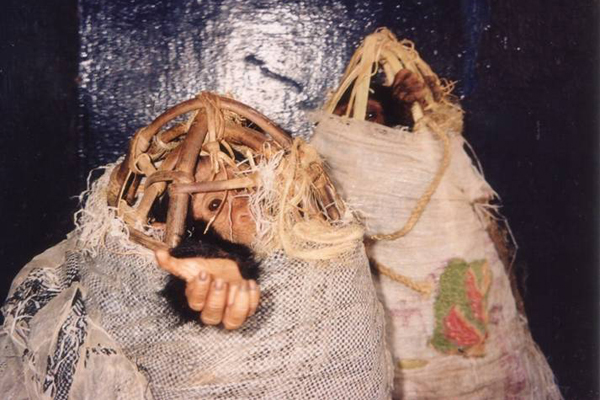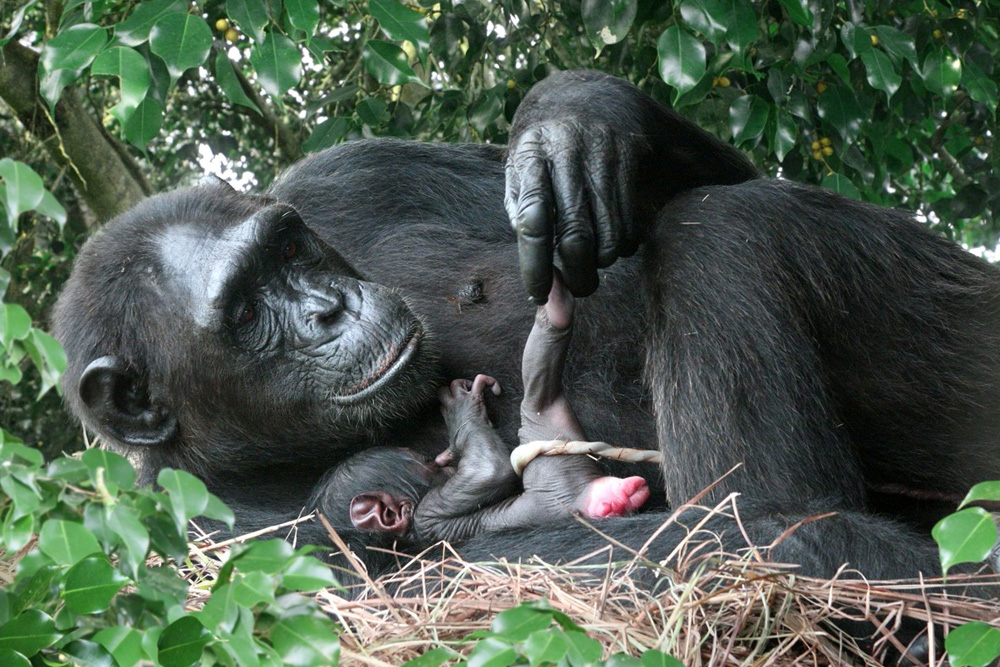
America's Fleeting Chance to Correct Chimps' Endangered Status (Op-Ed)

Get the world’s most fascinating discoveries delivered straight to your inbox.
You are now subscribed
Your newsletter sign-up was successful
Want to add more newsletters?

Delivered Daily
Daily Newsletter
Sign up for the latest discoveries, groundbreaking research and fascinating breakthroughs that impact you and the wider world direct to your inbox.

Once a week
Life's Little Mysteries
Feed your curiosity with an exclusive mystery every week, solved with science and delivered direct to your inbox before it's seen anywhere else.

Once a week
How It Works
Sign up to our free science & technology newsletter for your weekly fix of fascinating articles, quick quizzes, amazing images, and more

Delivered daily
Space.com Newsletter
Breaking space news, the latest updates on rocket launches, skywatching events and more!

Once a month
Watch This Space
Sign up to our monthly entertainment newsletter to keep up with all our coverage of the latest sci-fi and space movies, tv shows, games and books.

Once a week
Night Sky This Week
Discover this week's must-see night sky events, moon phases, and stunning astrophotos. Sign up for our skywatching newsletter and explore the universe with us!
Join the club
Get full access to premium articles, exclusive features and a growing list of member rewards.
Brian Hare is director of the Ape Research Consortium and an associate professor in Evolutionary Anthropology at the Center for Cognitive Neuroscience at Duke University. Vanessa Woods is the author of Bonobo Handshake and is a research scientist at Duke University. Hare and Woods contributed this article to LiveScience's Expert Voices: Op-Ed & Insights.
Chimpanzees are the only endangered species denied full protection under the endangered species act. When chimpanzees living in Africa were recognized as an endangered species in the late 1980s, the biomedical community successfully lobbied to prevent captive chimpanzees living in the United States from receiving that new protection.
This week, we have a chance to finally fix that injustice. The U.S. Fish and Wildlife Service has asked for public comment until Aug. 12 on whether the United States should provide protection to all chimpanzees under the endangered species act.
America fell in love with chimpanzees as a result of the pioneering research of Jane Goodall. Through private and public support, Americans became the major force protecting wild chimpanzees in Africa as well as captive chimpanzees in the United States. With this support, three generations of researchers have followed in Goodall's footsteps. These researchers have revealed exactly how similar the social lives of wild chimpanzees are to our own, how complex the problems are that chimpanzees can solve and what this all means for our own species' place in nature.
The same researchers have documented, tragically, how chimpanzee populations in Africa have been decimated — even going extinct over the past decade in several countries where chimpanzees existed for millennia. While 50 years ago there were well over a million wild chimpanzees, today you could not fill the seats of a large football stadium with the world's remaining chimpanzees.
In many countries the biggest threat to their survival is the illegal capture and sale of wild animals, or the "bushmeat" trade. Adult apes are slaughtered and their meat is sold to wealthy urbanites in Africa, Europe and America. Infants are taken from the backs of their dead mothers, and sold on the same black market. These "pets" quickly become too strong and intelligent to safely interact with people. Unless a welfare group intervenes, those chimps are either killed or sentenced to a life of isolation in a tiny cage.
The dangers this trade poses to chimps cannot be overstated. Remnant populations of slowly reproducing apes cannot sustain any level of "harvest," and yet a market value has been created in many countries. Simultaneously, the chimpanzee trade is exposing humans to novel diseases that could kill millions across the globe. Many of the worst- known diseases — such as HIV and Ebola — are thought to have come from humans engaging in this exact trade. Global health officials are concerned that the next pandemic will again originate from primates, like chimpanzees. A recent sting operation at several U.S. airports discovered passengers from Africa were transporting meat from chimpanzees and other primates infected with dangerous retroviruses.
Get the world’s most fascinating discoveries delivered straight to your inbox.
Having the United States recognize all chimpanzees as endangered — including captive chimpanzees in the U.S. — is a crucial first step in ending this alarming trade in chimpanzees and other primates.
The bushmeat trade is flourishing. The United Nations reported earlier this year that at least 3,000 great apes — including chimpanzees, bonobos, gorillas and orangutans — are being taken from the wild annually to be sold as pets and to zoos in developing countries. Gorillas have been sold for as much as $400,000 to private zoos in Asia. In 2011 and 2012, more than 100 infant chimpanzees were "legally" shipped to China from the West African country of Guinea. Both governments claim the apes were born in captivity in Guinea and South Africa — but neither Guinea nor South Africa has a facility that breeds captive chimpanzees — and neither China nor Guinea can explain why more than 100 infants would be taken from their mothers. Those infant chimpanzees are clearly from the wild and were sold for thousands of dollars to China to be used as pets and for circus acts.
Addressing the demand for captive chimpanzees and other apes in developing countries will be impossible until the United States gets its own house in order. Conservation and welfare organizations cannot make progress while hundreds of chimpanzees are needlessly being usedin biomedical research or are owned by private individuals as pets in the United States. We cannot demand that other countries protect their chimpanzees, if we are not even willing to recognize chimpanzees living in the United States as endangered.
Given the threat of the illegal ape trade to human health, you would think that the biomedical community would do everything in its power to stop it. On the contrary, members of the National Chimpanzee Research Consortium, which cares for laboratory chimpanzees, have again argued against listing all chimpanzees as endangered. Even though the National Academy of Sciences and the National Institutes of Healthhave recently concluded that invasive biomedical research on chimpanzees is "largely unnecessary," the largest U.S. biomedical lobby has argued that listing chimpanzees as endangered will threaten the U.S. research community's ability to study human diseases because there are no other chimpanzees to use for research.
As the director of the Ape Research Consortium, I can say that this is far from true. Our consortium members work with apes outside U.S. laboratories and have published more than 200 scientific papers relevant to human health in just the past eight years. Our work is noninvasive, and we actively support conservation and welfare efforts in Africa. This includes efforts to stop the bushmeat trade and study deadly diseases being transmitted between humans and apes in order to prevent a pandemic.
In order to protect the world's remaining chimpanzees, and potentially save millions of human lives, we must support the U.S. Fish and Wildlife Service, which has proposed to "… revise the listing of chimpanzees under the Act so that all chimpanzees, wherever found, are listed as endangered."
If the U.S. public shows support in the next crucial few days for such a move, we will enter a new era where the United States can once again lead in protecting apes and human health.
To raise your voice, hit the "Comment Now" button at regulations.gov.
The authors' most recent Op-Ed was Harnessing Dog Lovers: Crowdfunding Helping Canine Science. The views expressed are those of the author and do not necessarily reflect the views of the publisher. This article was originally published on LiveScience.com.
 Live Science Plus
Live Science Plus











